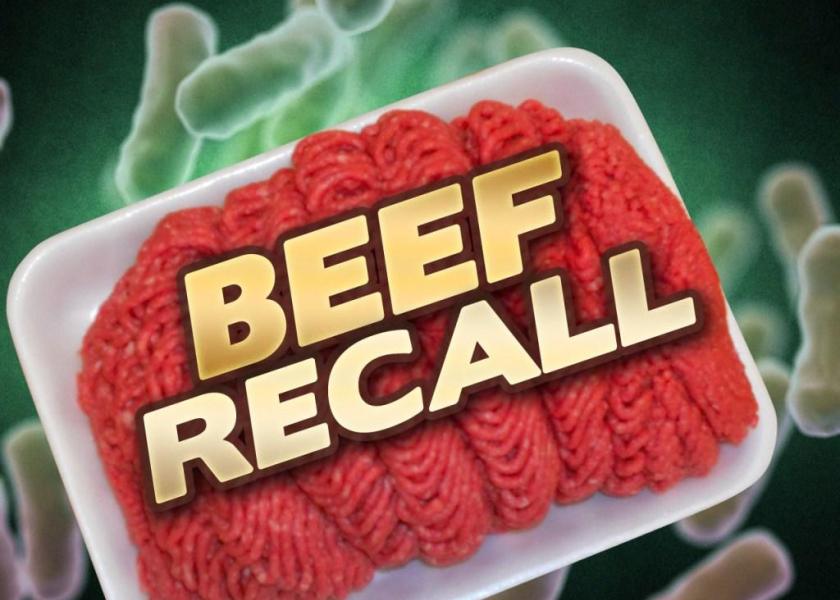JBS Recalls More Than 43,000 lb. of Beef for Plastic Contamination

JBS – the world largest beef packer – has recalled more than 43,000 lb. of ground beef after a possible contamination by hard pieces of plastic.
The U.S. Department of Agriculture’s Food Safety and Inspection Service (FSIS) announced the recall on April 8 after 43,292 lb. of ground beef processed in Plainwell, Mich., at JBS Plainwell, Inc. was found to have extraneous materials contaminating the meat.
The contaminant is believed to be hard pieces of plastic after the packing plant received two complaints that pieces of green, hard plastic were found in the products. On April 5, FSIS was notified by the packing plant.
The ground beef was produced on March 20, 2019, and bears the “EST. 562M” inside the USDA mark of inspection or printed on the bottom of the label.
The ground beef was shipped to Michigan and Wisconsin, with the following products are subject to the recall:
- 1-lb. plastic wrapped ground beef loaf with “fresh from Meijer GROUND BEEF 80% LEAN 20% FAT” with case code 47283 and sell by date of 4/10/2019 represented on the label.
- 1-lb. plastic wrapped ground beef loaf with “fresh from Meijer GROUND BEEF 85% LEAN 15% FAT” with case code 47285 and sell by date of 4/10/2019 represented on the label.
- 1-lb. plastic wrapped ground beef loaf with “fresh from Meijer GROUND BEEF 90% LEAN 10% FAT” with case code 47290 and sell by date of 4/10/2019 represented on the label.
- 1-lb. plastic wrapped ground beef loaf with “LEAN GROUND BEEF” with case code 42093 and sell by date of 4/10/2019 represented on the label.
- 1-lb. plastic wrapped ground beef loaf with “CERTIFIED GROUND SIRLOIN” with case code 42090 and sell by date of 4/10/2019 represented on the label.
- 1-lb. plastic wrapped ground beef loaf with “CERTIFIED GROUND ROUND” with case code 42085 and sell by date of 4/10/2019 represented on the label.
- 1-lb. plastic wrapped ground beef loaf with “Fresh! BLACK ANGUS GROUND CHUCK” with case code 42283 and sell by date of 4/10/2019 represented on the label.
- 1-lb. plastic wrapped ground beef loaf with “CERTIFIED GROUND CHUCK” with case code 81631 and sell by date of 4/10/2019 represented on the label.
- 1-lb. plastic wrapped ground beef loaf with “GROUND BEEF” with case code 81629 and sell by date of 4/10/2019 represented on the label.
No other problems have been reported and there have been no confirmed reports of adverse reactions from eating the products. However, FSIS is concerned that possibly contaminated ground beef might have been frozen after purchase. It is urged that the products should not be consumed and it should either be thrown out or returned to the place of purchase.
The recall is being categorized as a “Class II” recall by FSIS meaning it poses a health hazard with remote probability of adverse health consequences should the product be consumed.
Other JBS Recalls Recently
During the past year JBS has had several other recalls related to plastic or bacterial contaminants.
On May 2, 2018, a similarly sized recall was put in place by JBS after 35,464 lb. of ground beef was found to contain hard, blue plastic at its Lenoir, North Carolina plant.
Then in October 2018, JBS announced a much larger recall on 6.5 million lb. of beef that was contaminated with Salmonella Newport at its Tolleson, Arizona plant. The salmonella recall was later increased to than 12 million lb. and was determined to have sickened 333 people.







